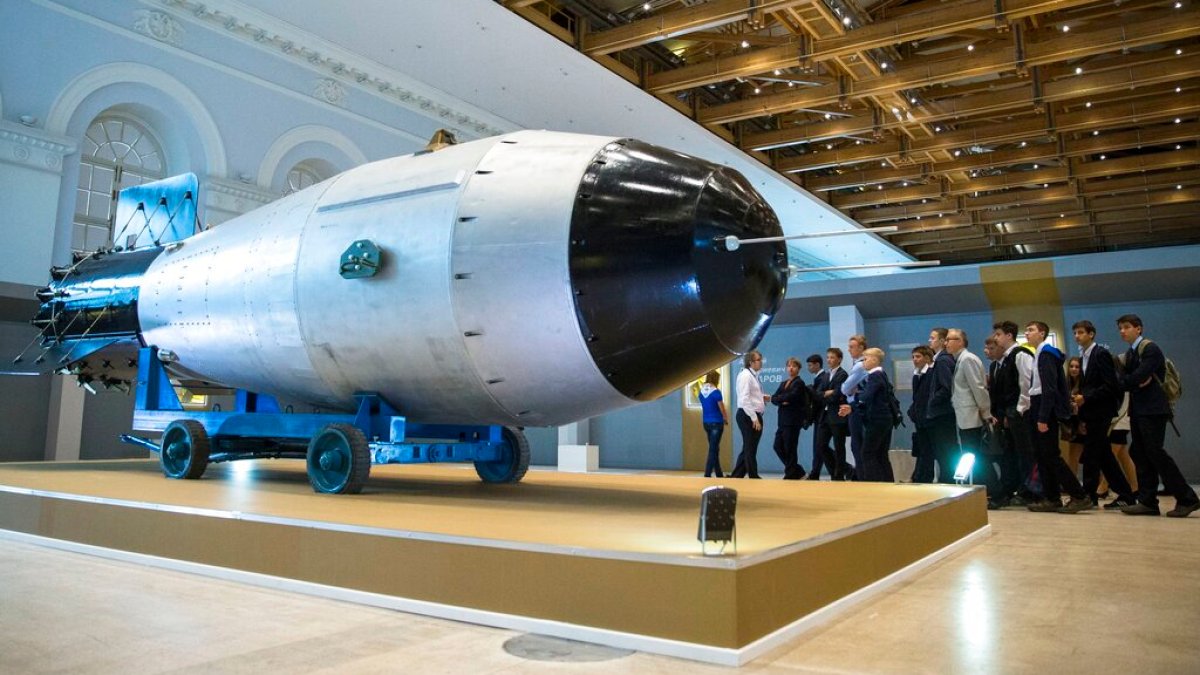US ‘disturbed’ by Russia’s plan to reverse nuclear test ban ratification
Russia says withdrawal from ratification of nuclear weapons test ban treaty places Moscow on ‘equal footing’ with US, which has not ratified the pact.
The United States said it was “disturbed” by a Russian envoy’s announcement that Moscow will reverse its ratification of a 1996 treaty that banned the testing of nuclear weapons.
Russia’s envoy to the Comprehensive Nuclear-Test-Ban Treaty Organization (CTBTO), Mikhail Ulyanov, said on Friday that Moscow will revoke its ratification of the pact.
The announcement by Ulyanov added new fuel to tensions between the world’s largest nuclear weapons powers amid Russia’s invasion of Ukraine and US military support for Kyiv.
Ulyanov said on social media that “Russia plans to revoke ratification [which took place in the year 2000] of the Comprehensive Nuclear-Test-Ban Treaty [CTBT]”.
“The aim is to be on equal footing with the US who signed the treaty, but didn’t ratify it. Revocation doesn’t mean the intention to resume nuclear tests,” he said.
#Russia plans to revoke ratification (which took place in the year 2000) of the Comprehensive Nuclear-Test-Ban Treaty (#CTBT). The aim is to be on equal footing with the #US who signed the Treaty, but didn’t ratify it. Revocation doesn’t mean the intention to resume nuclear tests
— Mikhail Ulyanov (@Amb_Ulyanov) October 6, 2023
Though Washington signed but has not ratified the CTBT, it has observed a moratorium on nuclear weapons test explosions since 1992.
Responding to Russia’s announcement, the US State Department said it was “disturbed” by the move.
“We are disturbed by the comments of Ambassador Ulyanov in Vienna today,” a US State Department spokesperson said in a statement.
“A move like this by any state party needlessly endangers the global norm against nuclear explosive testing,” the State Department said.
Russia should not be “wielding arms control and irresponsible nuclear rhetoric in a failing attempt to coerce other states”, the State Department added, appearing to suggest that Moscow’s plan to withdraw from the ratification of the treaty was aimed at pressuring the US and other countries who are supporting Ukraine in its fight against Russian forces.
Ulyanov’s statement followed a day after Russian President Vladimir Putin said that Moscow could reassess its ratification of the treaty.
Speaking on Thursday at a forum with foreign affairs experts, Putin noted that the US had signed but not ratified the 1996 nuclear test ban treaty, while Russia had signed and also ratified. Russia might adjust its stance to mirror that of the US, Putin said.
“Theoretically, we may revoke the ratification,” he said. “It’s up to the state duma members.”
Putin also said that while some have discussed the need for Russia to conduct nuclear tests, he had not yet formed an opinion on the subject.
“I’m not ready to say yet whether it’s necessary for us to conduct tests or not,” he said.
Asked if Russia’s rescinding of the ban would pave the way for the resumption of nuclear bomb tests, Kremlin spokesman Dmitry Peskov told reporters that “it doesn’t mean a statement about the intention to resume nuclear tests”.
Revoking Russia’s ratification of the ban would “bring the situation to a common denominator” with the US, Peskov said.
UN Secretary-General Antonio Guterres urged “all nuclear weapon states to publicly reaffirm their moratoriums against nuclear testing and their commitment to the CTBT”, UN deputy spokesman Farhan Haq said on Friday.
Robert Floyd, the executive director of the CTBTO, which monitors compliance with the pact, said in a statement that it would “be concerning and deeply unfortunate if any State Signatory were to reconsider its ratification of the CTBT”.
I am aware of recent media reports about the possibility of the Russian Federation revoking its ratification of the Comprehensive Nuclear-Test-Ban Treaty (CTBT).
See my full statement on this important matter here: ➡️— Robert Floyd (@_RobFloyd) October 6, 2023
“The Russian Federation has consistently reaffirmed its strong support of the CTBT since its very inception, helping to negotiate the Treaty in the Conference on Disarmament, signing the day it opened for signature on 24 September 1996, and ratifying it in June 2000,” Floyd said.
“The CTBT has established a powerful norm against nuclear testing and is making an invaluable contribution to international peace and security, for the good of humanity. It is more important than ever that we reinforce that contribution,” he added.




